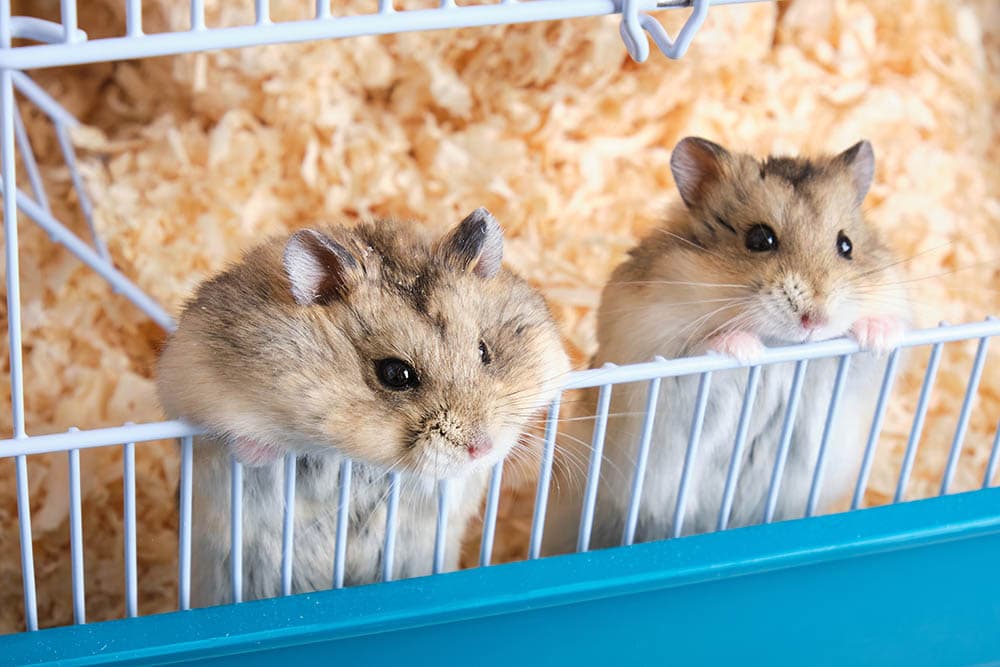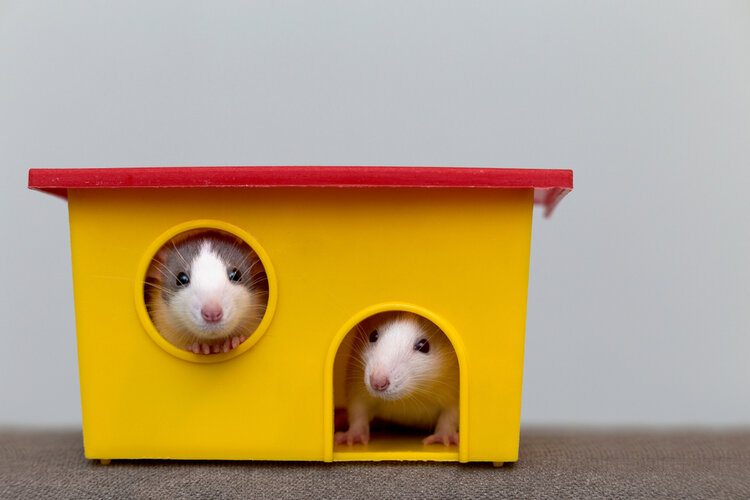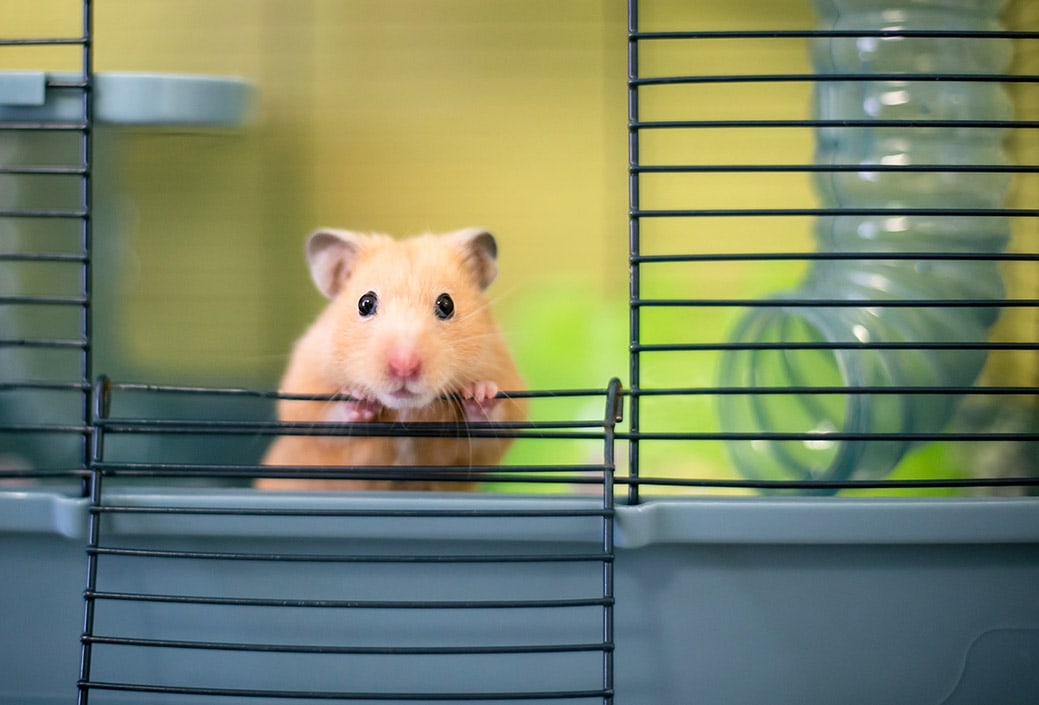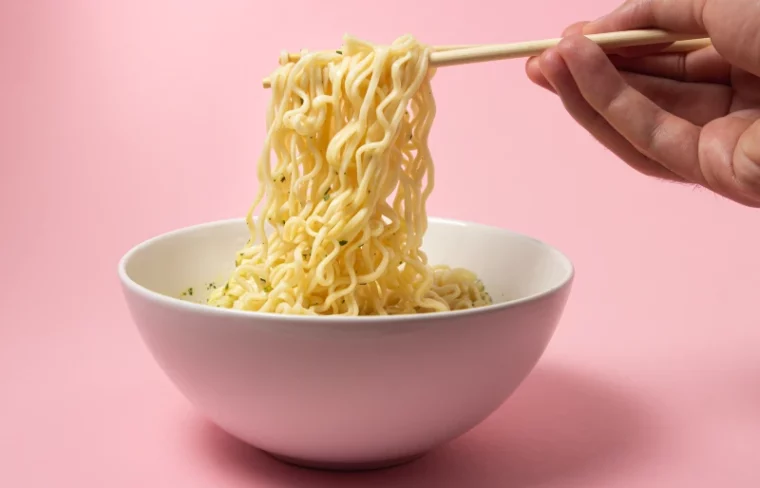
Hamsters are fun little creatures to have as pets. They are not terribly hard to care for, and once you bond with your hamster, they’ll start to trust you and enjoy interacting with you. Since their domestication, hamsters have become household pets throughout the globe, but it’s important to learn how to care for them properly.
A hamster’s diet should consist of protein, carbohydrates, fat, and crude fiber, as well as all the necessary vitamins and minerals that they require. But they can enjoy small amounts of specific human foods, such as apples and carrots, but what about noodles? Can they eat them? Noodles are non-toxic to hamsters, but they can only have them in moderation.
In this post, we’ll explain how much and how often you can feed your hamster noodles.
What Are Noodles?
Noodles are made with a type of flour mixed with water and some salt. The flour used to make noodles can vary; most noodles are made from wheat, but some can be made from barley, rice, buckwheat, root starches, or mung bean flour. Many Asian dishes have noodles as the star ingredient, like pho, ramen, pad thai, and various stir-fried meals.
Plain noodles made with wheat, barley, rice, or buckwheat are non-toxic and okay to give once a month, but you should avoid giving more than a few strands once a month as a special treat.
Sometimes, “noodles” and “pasta” are used interchangeably. Pasta is traditionally made with wheat flour, water, and sometimes egg. If you want to give your hamster pasta, check out our article about how to do that safely.

How Often Can I Give My Hamster Noodles?
Now that we know hamsters can eat noodles, how often can they enjoy them?
Moderation is key when providing safe foods outside a hamster’s regular diet. In this case, noodles are high in carbohydrates and gluten. Your hamster should be getting the recommended 35% to 40% of carbs in their regular daily diet, and anything more than that should only be on occasion. Hamsters can have a little gluten because they can digest grains but only in small quantities.
We recommend letting your hamster eat only a few noodles at a time and only once a month. You may have watched videos surfacing on the Internet of hamsters slurping noodles into their mouths while holding them in their little paws. It’s adorable, and if you want to feed your hamster noodles, cutting them up so they are not so long may be easier for them to consume. Just remember only to feed very small amounts and only very infrequently.
Hamsters can eat noodles raw or cooked, but ensure you don’t add any seasoning or sauces to them. It’s best to feed your hamster whole-grain noodles rather than refined ones. Refined noodles are heavily processed, which strips the noodles of essential vitamins, minerals, and fiber.
Can Eating Noodles Make My Hamster Sick?
As long as noodles are not the main food source and are not covered with oils, sauces, and spices, giving your hamster an occasional noodle should be okay.
However, it is vital to observe your hamster for signs of any negative reactions to a new food you provide.
If you notice any of these signs, contact your veterinarian right away. You should also discard any uneaten noodles from the cage after 24 hours and monitor your hamster while he eats them.
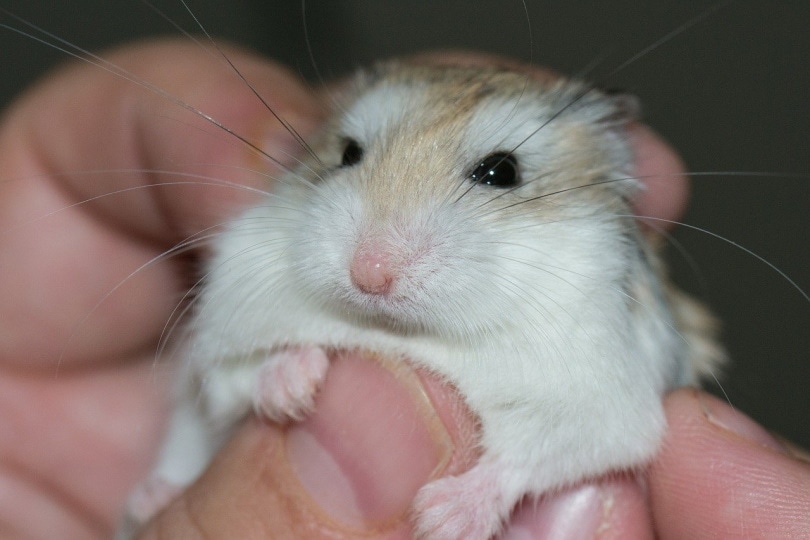
Are There Health Benefits to Feeding My Hamster Noodles?
Noodles have a few nutritional benefits to offer your hamster. They are low in calories and contain moderate amounts of calcium, fiber, and a little protein. However, they are high in carbs, and if given more than the recommended amount, your hamster could become obese, which can open up a slew of health issues.
As long as your hamster eats a well-balanced diet, it’s okay to provide the occasional noodle as a special treat, whether the noodle is whole wheat, plain, or made with other grains.
What Is the Ideal Hamster Diet?
Hamsters must be fed a well-balanced diet that includes high-quality commercial hamster pellets, but that’s not all. They can enjoy timothy hay, which should be provided daily for its fiber content and is an essential part of your hamster’s diet.
The diet should contain 15–25% protein, 35–40% carbohydrates, 4–5% fat, and 5% crude fiber. These little furry creatures can also enjoy 10% of fresh veggies in their daily meals, such as carrots, broccoli, peppers, peas, squash, sweet potato, cauliflower, and cucumbers.
Hamsters are omnivores, which means they eat both plants and insects. That said, you can provide your hamster with a mealworm, insect larvae, or cricket, but these are a treat and must not be given regularly. It’s best to buy these from a pet store rather than gathering them from the wild to ensure they are pesticide-free.
Apart from a well-balanced diet, your hamster requires access to fresh drinking water 24/7. The best and most ideal way is to attach a no-drip water bottle to your hamster’s enclosure or cage, which will prevent spillage and keep your hamster’s cage dry.
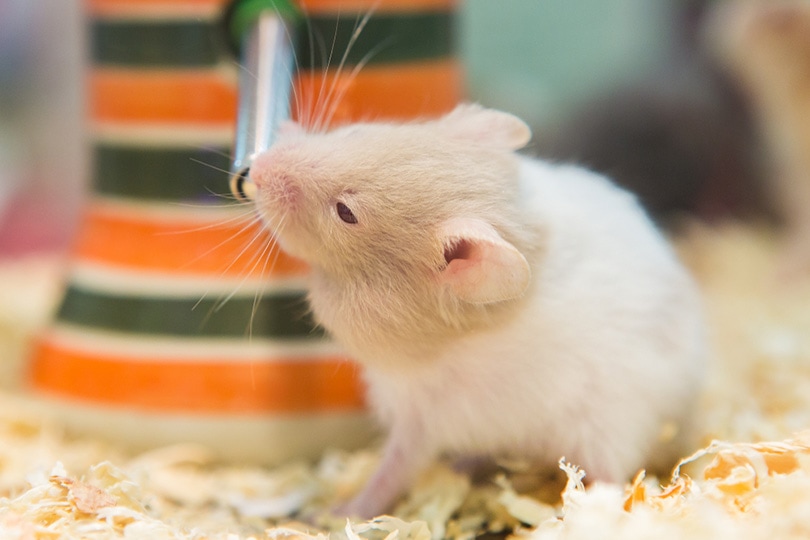
Conclusion
It’s safe to give your hamster plain noodles without added spices or seasonings. If noodles are cooked, it is important to allow the noodles to cool before feeding.
Always feed a well-balanced diet of commercial hamster pellets, timothy hay, and safe fruits and vegetables suitable for hamsters. If ever in doubt, consult your veterinarian to ensure you’re feeding proper nutrition, and always observe your hamster when introducing a new food to ensure there are no negative reactions. Remove and discard uneaten noodles or any other uneaten fresh food from the enclosure within 24 hours to avoid spoiling.
Featured Image Credit: Nerza, Shutterstock


